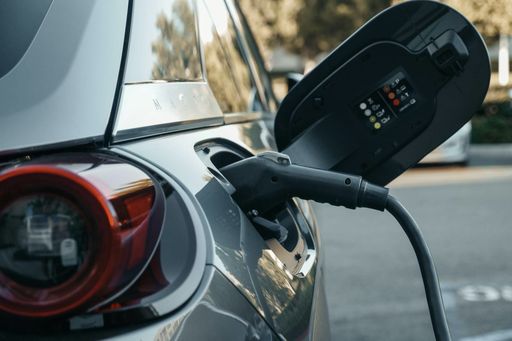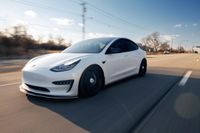Ford Reassessing EV Plans, Including Battery Integration
Ford Motor is rethinking its electric vehicle strategies, including reassessing the need for vertical battery integration, CEO Jim Farley said Tuesday.

Rethinking EV Strategies
Ford Motor is reevaluating its electric vehicle strategies, including the need for vertical battery integration, according to CEO Jim Farley. The company had previously announced plans to delay or reduce spending by $12 billion on all-electric vehicles. However, Farley's recent comments provide more details on Ford's changing plans for EVs. The decision comes as sales of electric vehicles are growing at a slower pace than expected.
Farley mentioned that Ford is rationalizing the level and timing of battery capacity to align with demand and reassessing its reliance on vertical integration. He also indicated that the company is exploring new chemistries and capacities for batteries. Farley emphasized that although Ford believes in the growth potential of EVs, widespread adoption among mass-market consumers won't occur until the costs are more comparable to traditional vehicles.
Implications for Ford's EV Business
Ford Chief Financial Officer John Lawler stated that the company is investigating adjustments to production capacity in line with demand and potentially delaying the release of next-generation EVs. Lawler also mentioned that the EV business, known as Model e, incurred a loss of $4.7 billion in 2023. He emphasized that the unit needs to become profitable on its own in the near future.
As Ford reassesses its EV business, the company plans to focus on sales of hybrid vehicles, particularly trucks. Ford expects its hybrid sales to increase by 40% this year. The company sold 133,743 hybrid vehicles in the US in 2023.
Outlook for Ford's EV Unit
Ford is pulling back and reevaluating its EV business, considering the challenges it currently faces in terms of profitability and demand. The company no longer has a target of achieving an 8% margin for its EV unit by 2026. The decision reflects the new market reality and the need to ensure profitability.
While Ford navigates this transition, it will prioritize its hybrid vehicle sales. This strategy shift comes as EVs remain more expensive than traditional vehicles, hindering mass-market adoption. Ford aims to make EVs more affordable in the future while leveraging the growing demand for hybrid vehicles.


